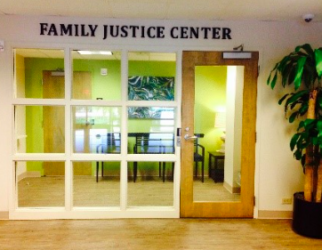Many, many businesses and government services are on hold right now, but one essential service that’s not on hold is the service provided by the two Guilford County Family Justice Centers, offices that are there to prevent and respond to domestic violence, child abuse and elder abuse, and similar threats.
In some parts of the country these days – with many Americans losing their jobs and the vast majority of the country under Stay-at-home or Shelter-in place orders – there’s been an increase in domestic violence. Guilford County Family Justice Center Director Catherine Johnson said that, thankfully, there hadn’t been an upswing in reported incidences in this county so far.
“We have seen a reduction in folks coming in for help, but the cases that we are working with are more intensive,” Johnson said on Thursday, April 2. “Between both locations, we have helped 224 clients since last Monday.”
She added that the centers are preparing for the expected spike in victims needing help.
“Isolation is a powerful abuse tactic and can create major risks for victims,” Johnson wrote in an email. “One significant risk related to isolation is that victims may be cut off from their support systems – such as friends, family and coworkers. Family Justice Center partners want victims to know that help is still available!”
The Family Justice Center has an office in Greensboro and one in High Point. Those continue to operate Monday through Friday from 8:30 a.m. to 4:30 p.m. in order to coordinate “the emergency and safety needs of victims of domestic violence, sexual assault, elder abuse, and child maltreatment” – however, the centers have reduced their walk-in hours.
According to Johnson, in response to the pandemic, the centers walk-in hours are now from 8:30 a.m. to 1 p.m., while the afternoon hours are for emergency appointments.
Also, for victims, there’s a 24-hour crisis hotline: 336-273-7273. That’s provided by Family Service of the Piedmont and is still up and running.
Services provided at the county’s Justice Centers in conjunction with local agencies include but aren’t limited to safety planning, filing for an emergency protective order, legal consultation and talking with law enforcement.

